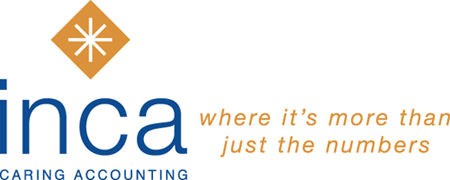For households and businesses alike, the last two years have been tough. Hopefully, the UK is now through the worst of the Covid crisis, but the economic repercussions of the pandemic are likely to be felt by all of us for a long time yet.
The road ahead looks far from smooth, and there will be bumps to navigate along the way. The cost of living rose by 5.4% in the 12 months to December – the highest rate of increase for 30 years. The Bank of England raised its key interest rate in December and predicts inflation will hit 6% by spring. In April, the energy regulator Ofgem is expected to lift the price cap on household gas and electricity bills. Also from April, changes to the tax system mean employers, workers, and the self-employed will pay 1.25p more in the pound for National Insurance, and company directors will see the tax they pay on dividends increase.
All in all, the universal nature of the new tax changes and the unpredictability of the economic climate mean we’re all likely to feel a little more financially squeezed over the coming months.
At an individual level, we can’t influence the economy, but prudent end of year tax planning may enable some of us to offset the impact of upcoming tax increases. As the current tax year draws to a close, it makes good sense to review your financial position ahead of the changes and take full advantage of any opportunities available to you.
There are only a few weeks left until the end of the tax year on 4th April, but if you’re an individual or a business owner who has some flexibility in when and how you take your earnings, there’s still time to make changes that could boost your 2021-22 income and make a positive difference to your financial situation going into the new tax year.
Here are three things to consider:

1. If you’re self-employed, is there scope to increase your profit for 2021-22?
From April, all classes of National Insurance contributions will increase by 1.25%. If you’re self-employed, you might want to consider increasing your profits in what remains of the current tax year. You might choose to do this by bringing projects forward, opting to increase the hours you work, or by delaying non-essential expenditure until after 4th April.
Of course, you’ll have to pay tax on any incremental profit you’re able to generate, but it will be less than you’ll pay after April. Any advantage this brings you will have to be weighed up against the fact that you’ll need to pay the tax you owe in January 2023 rather than January 2024, which will have implications for your cash flow.
2. If you’re a company director, is there sufficient profit to pay yourself a dividend before 4th April?
If you operate your business as a limited company, you can distribute dividends at any point in the year – so long as you have sufficient profit in your business after allowing for Corporation Tax.
With all rates of dividend tax increasing by 1.25% in the new tax year, you might want to consider paying yourself a higher than usual dividend before April. Again, any benefit will need to be weighed up against having to pay tax earlier, and care will need to be taken to avoid additional earnings moving you into a higher tax band – more on this point later.
3. If you employ staff, is it beneficial to pay bonuses before 4th April?
The upcoming increase to National Insurance means bonuses paid to staff will cost employees and employers more after April. For this reason, you might want to think about paying any planned bonuses before the end of the current tax year to benefit both your business and your employees.
Be sure to consider all the consequences of any actions you take
If you’re in a position to take advantage of them, the above options may look attractive, but before you make any decisions, there are other considerations you’ll have to balance against increasing your earnings for 2021-22.
They include:
- How much tax you’ll have to pay
If you increase your earnings for the current tax year, you’ll need to allow for the fact that your 2021-22 tax bill will increase in direct proportion.
- The impact on your cash flow
Taking money out of your business or paying tax earlier than you might otherwise do will affect your cash flow. Therefore, you’ll need to produce a forecast to ensure any actions you plan to take will have no negative implications for your business going forward.
- The rate at which you’ll pay tax
You’ll need to make sure that any additional earnings don’t exceed key ‘tipping points’ that will result in you having to pay more tax. If your annual income exceeds £50k, you’ll move into the higher rate tax band and begin to pay 40% tax on your earnings. If you earn over £100k, your personal tax allowance of £12.5k per year will start to reduce by £1 for every £2 you earn over £100k – dropping to zero if your income goes over £125,145.
What’s Best for You? Let Inca Help You Make a Plan!
While end of year tax planning is always important, this year it’s more essential than ever. Tax increases for the tax year 2022-23 starting on 5th April are a certainty and will affect all of us. While they can’t be avoided, there’s still time in what’s left of the current tax year, to take advantage of current, lower rates.
But the window is closing.
Let Inca review your personal situation and recommend what action – if any, you should take.
For an initial discussion with one of our experts, call us now on 01235 868888 or contact us by email at [email protected]




